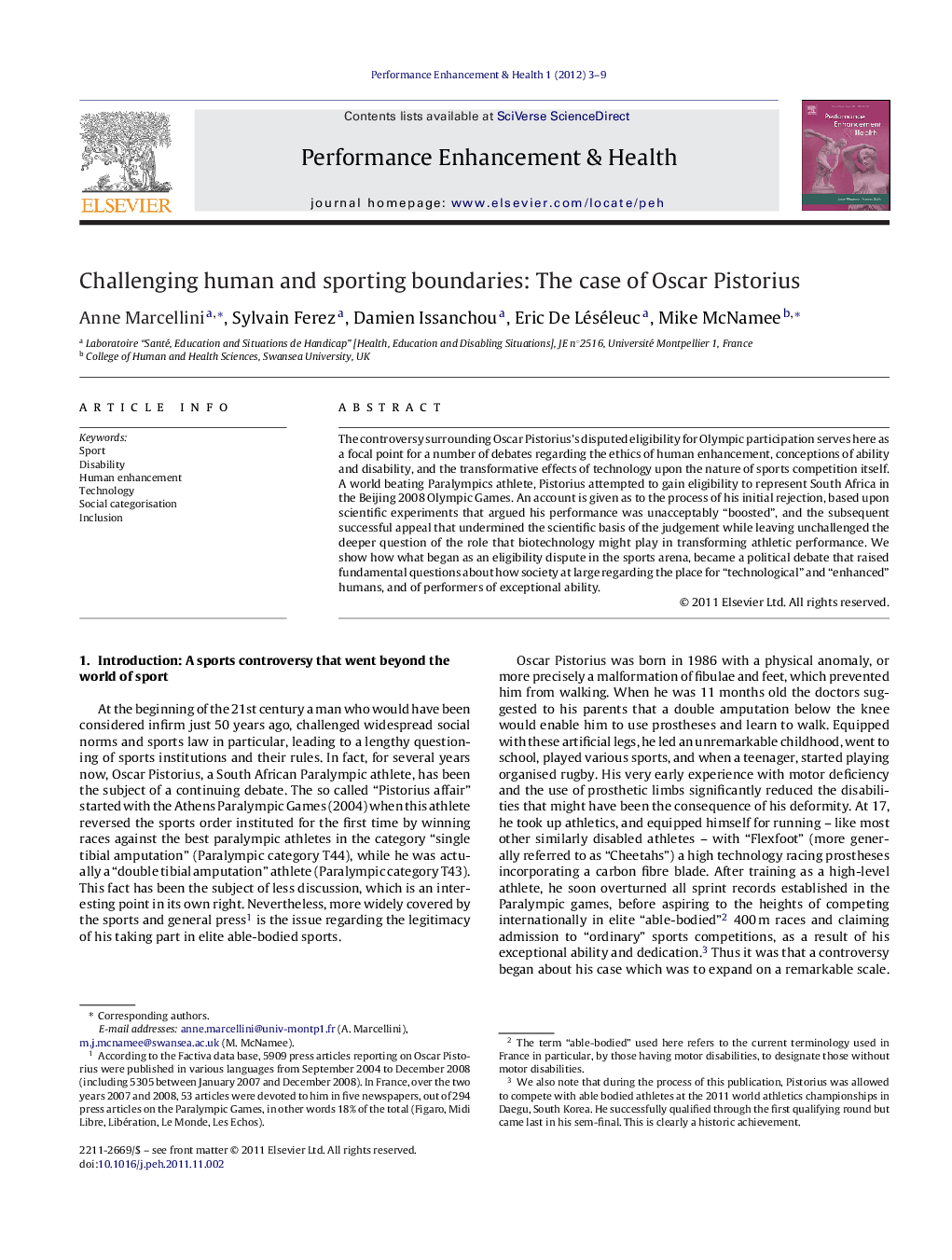| Article ID | Journal | Published Year | Pages | File Type |
|---|---|---|---|---|
| 889558 | Performance Enhancement & Health | 2012 | 7 Pages |
The controversy surrounding Oscar Pistorius's disputed eligibility for Olympic participation serves here as a focal point for a number of debates regarding the ethics of human enhancement, conceptions of ability and disability, and the transformative effects of technology upon the nature of sports competition itself. A world beating Paralympics athlete, Pistorius attempted to gain eligibility to represent South Africa in the Beijing 2008 Olympic Games. An account is given as to the process of his initial rejection, based upon scientific experiments that argued his performance was unacceptably “boosted”, and the subsequent successful appeal that undermined the scientific basis of the judgement while leaving unchallenged the deeper question of the role that biotechnology might play in transforming athletic performance. We show how what began as an eligibility dispute in the sports arena, became a political debate that raised fundamental questions about how society at large regarding the place for “technological” and “enhanced” humans, and of performers of exceptional ability.
► The case of Oscar Pistorius challenges the boundary of health and performance enhancement. ► Sport may be driving towards the spectacle of the “enhanced human”. ► Technological enhancement in sport poses questions about distinguishing between repairing and/or enhancing the human in pursuit of (sporting) excellence.
